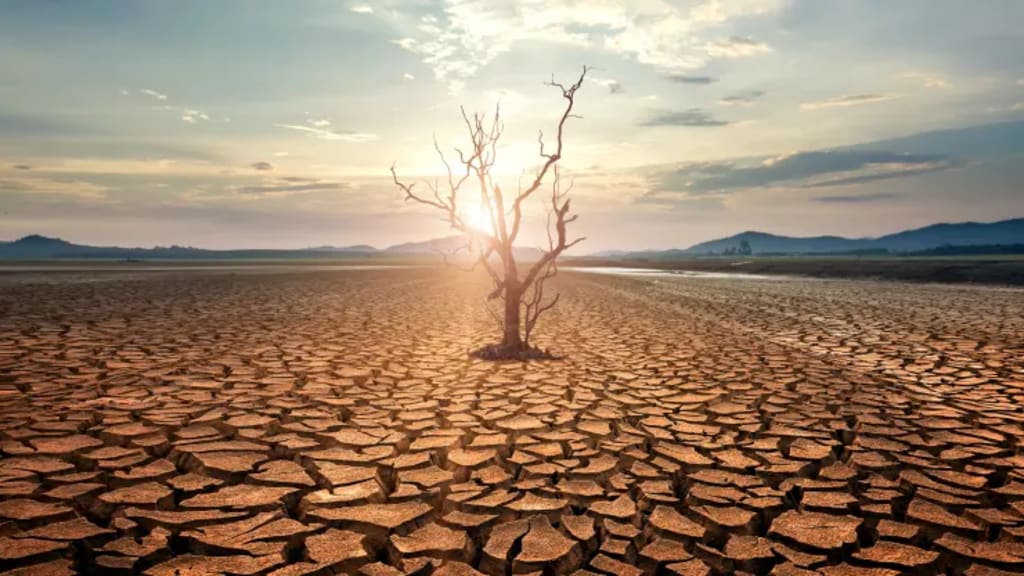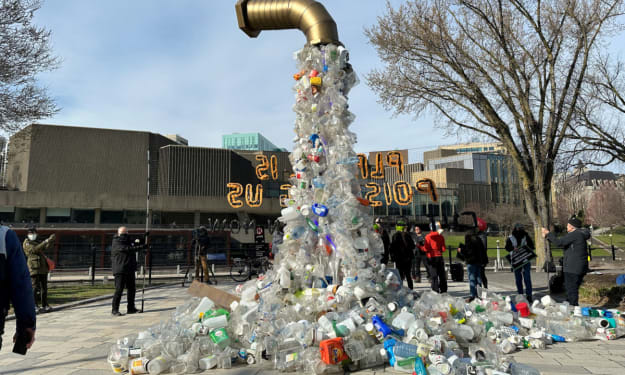
The UN weather agency, the World Meteorological Organization, states that due to increased extreme weather and climate threats brought on by global warming, Asia was the region most affected by disasters in the world last year.
In a report this week, WMO Secretary-General Celeste Saulo stated, "Many countries in the region experienced their hottest year on record in 2023, along with a barrage of extreme conditions, from droughts and heatwaves to floods and storms."
Over 2,000 people lost their lives as a result of the floods and storms that affected over 9 million people on the continent. In the meantime, the area continued to see an increase in heat waves.
"The frequency and intensity of these events have increased due to climate change, having a significant impact on economies, societies, and most importantly, human lives," Saulo continued.
The study issued a warning, pointing out that critical indicators of climate change, like sea level rise, melting glaciers, and surface temperature, indicated deteriorating conditions and the need for increased disaster risk reduction in Asia.
Rising temperatures and erratic precipitation
The second-highest mean temperature ever recorded was recorded in 2023 over Asia.
As a result of the warming trend nearly doubling between 1960 and 1990, Asia is warming more quickly than the rest of the world, which will increase economic losses and casualties, according to a WMO report.
According to the report, record heat was experienced in countries like Kazakhstan and Japan last year, while particularly high temperatures were recorded in regions spanning from eastern China to Japan and from western Siberia to central Asia.
A NASA report states that higher temperatures are linked to variations in precipitation and a rise in the frequency of extreme water events and droughts. Additional scientists have issued a warning that extended dry spells can cause flash floods during periods of intense rainfall.
Even though the World Meteorological Organization reported that 2023 saw a significant deficiency in precipitation across much of Asia, there were also numerous extreme weather events linked to flooding and heavy rain.
A recent report states that the majority of the $65 billion in economic damages in Asia-Pacific last year were caused by severe floods in China and droughts in India.
In July, there were severe floods in northern China, which had some of the worst storms in recent memory. Beijing, the country's capital, also experienced its highest level of precipitation in 140 years. In the meantime, there was an ongoing drought in the southwest of China in 2023, with precipitation levels almost always below average.
India experienced both drought and floods, with the latter reaching historically high levels in August—the hottest month on record globally. Additionally, the nation experienced heatwaves in April and June that resulted in over 100 heatstroke deaths.
According to the WMO report, hydropower, agriculture, industry, and sources of drinking water could all suffer from a lack of rainfall.
More readiness is required
Asia has been urged to be more climate-ready by the WMO.
The report's authors contended that the data validates the necessity of early warning systems for extreme weather and increased disaster risk reduction in order to lessen future losses and damage brought on by climate change.
Between 1970 and 2021, the region already experienced 3,612 natural disasters, resulting in $1.4 trillion in losses to the economy and almost a million fatalities, or 47% of all natural disaster-related deaths worldwide during that time.
According to the WMO, if an early warning is given within 24 hours of a disaster occurring, the amount of damage caused can be decreased by 30%.
The report's conclusions, according to Saulo, are "sobering."
She stated in the report that "we are at a critical juncture, where the impact of climate change intersects with societal inequalities."





Comments
There are no comments for this story
Be the first to respond and start the conversation.